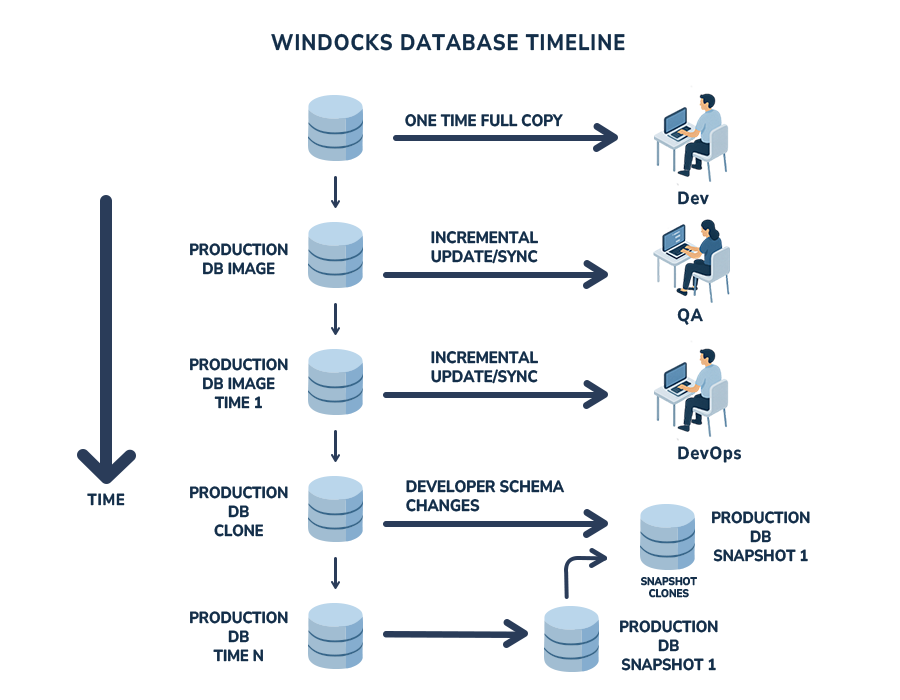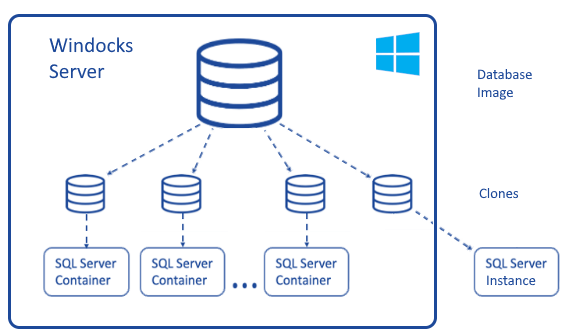Windocks vs Red Gate
The top seven reasons companies like Novartis, American Family Insurance, and others prefer Windocks.
Better database cloning
Windocks database cloning scales to support large databases, with greater flexibility, and production support.
Large, multi-database environments.
Windocks starts with a multi-database capable image, that easily scales to efficiently deliver 50+ TB. This is achieved with a full backup SQL Server image that is updated as often as needed with transaction log backups. Oracle and Oracle EBS environments are supported with snapshots of standby databases (that are stood up automatically by Windocks). The result is fast and flexible delivery of large database environments.
Near real-time and point-in-time databases
The same tooling that supports scalability also supports near real-time clones of production, and delivery of point-in-time databases.
Daily production reporting
Reliable delivery of near real-time production data is why enterprises choose Windocks for daily delivery of production reporting and analytics.


SQL Server containers and more
Windocks was first to market with Windows Docker SQL Server containers in 2015, and remains the only firm supporting these today. Our customers prefer SQL Server containers that are identical to conventionally installed SQL Server instances, but are delivered in seconds. Run 50 or more containers on a single server for reduced support and administration, and for superior support for geographically dispersed teams.
Promoting a Windows SQL Server clone as a new image
Another benefit of Windows SQL Server containers is the freedom to promote them to become a new image. Both Windocks and Red Gate Clone support this on Linux, but only Windocks offers this on Windows.
A modern architecture and API
A common complaint of Red Gate is their client/server architecture, that requires extensive scripting, adding to DBA support and overhead.
Orchestration
Windocks goes beyond database cloning by orchestrating delivery of cloned multi-database environments to containers or existing instances, the application of scripts or third party executables (for masking or Git operations), for delivery of business ready data. All with a single API call.
If you’re interested to learn more, let's meet!
